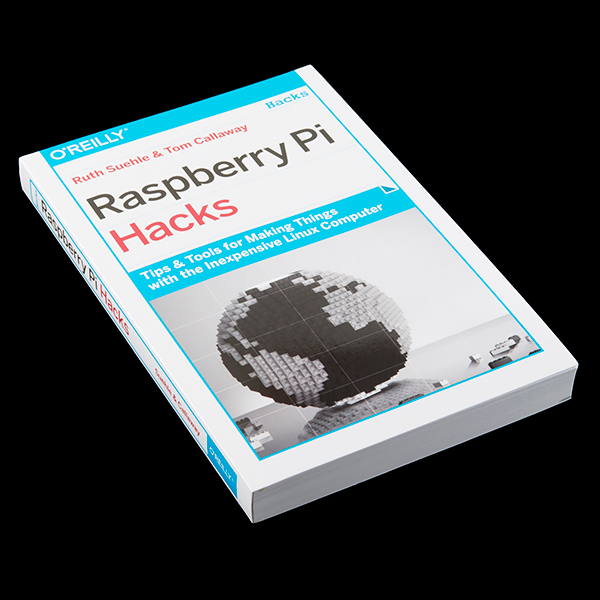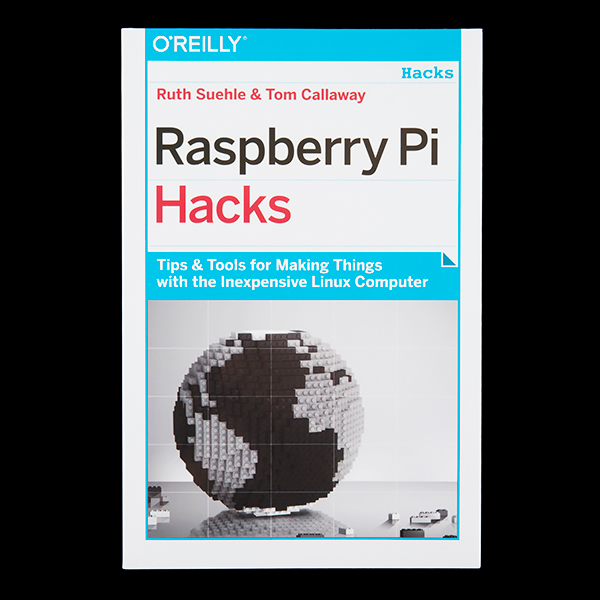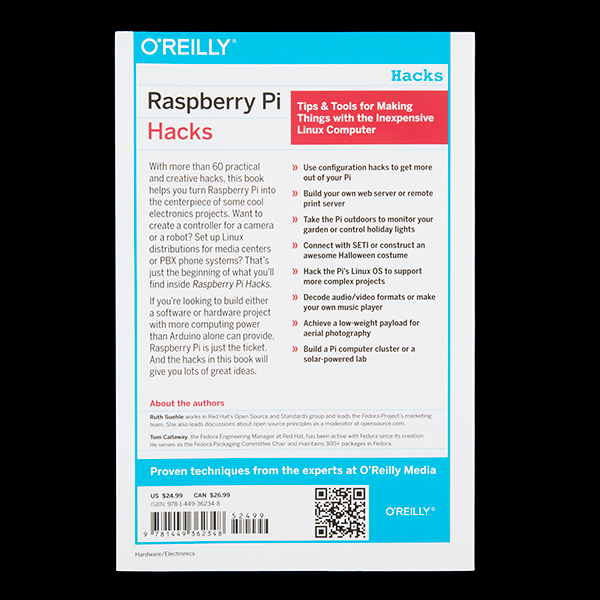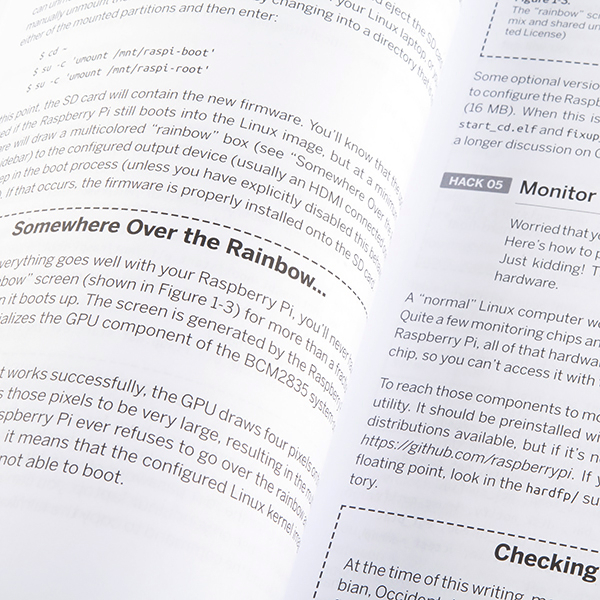Raspberry Pi Hacks
With more than 60 practical and creative hacks, this book helps you turn Raspberry Pi into the centerpiece of some cool electronics projects. Want to create a controller for a camera or a robot? Set up Linux distributions for media centers or PBX phone systems? That’s just the beginning of what you’ll find inside Raspberry Pi Hacks.
If you’re looking to build either a software or hardware project with more computing power than Arduino alone can provide, Raspberry Pi is just the ticket. And the hacks in this book will give you lots of great ideas.
- Use configuration hacks to get more out of your Pi
- Build your own web server or remote print server
- Take the Pi outdoors to monitor your garden or control holiday lights
- Connect with SETI or construct an awesome Halloween costume
- Hack the Pi’s Linux OS to support more complex projects
- Decode audio/video formats or make your own music player
- Achieve a low-weight payload for aerial photography
- Build a Pi computer cluster or a solar-powered lab
Info:
- Author: Ruth Suehle & Tom Callaway
- Publisher: O'Reilly Media
- Paperback: 394 pages
- ISBN-10: 1-4493-6234-6
- ISBN-13: 978-1-4493-6234-8
Raspberry Pi Hacks Product Help and Resources
Core Skill: Programming
If a board needs code or communicates somehow, you're going to need to know how to program or interface with it. The programming skill is all about communication and code.
Skill Level: Competent - The toolchain for programming is a bit more complex and will examples may not be explicitly provided for you. You will be required to have a fundamental knowledge of programming and be required to provide your own code. You may need to modify existing libraries or code to work with your specific hardware. Sensor and hardware interfaces will be SPI or I2C.
See all skill levels
Comments
Looking for answers to technical questions?
We welcome your comments and suggestions below. However, if you are looking for solutions to technical questions please see our Technical Assistance page.
Customer Reviews
No reviews yet.





I've been involved with Linux as a user/developer/embedded engineer since the 90's but I still find the Pi a fascinating bit of tech since it's so cheap you can do things with it that previously would not have made economic sense. I picked up a copy of this book for a young friend of the family who was looking for something the help him get past the newbie stage, and while I did not read the book in detail I took a close look at the TOC and read a few of the example projects.
This book covers configuration tasks not obvious to someone starting out, like setting up SSH, configuring a static IPv4 address, configuring the Pi to run headless, etc. Of course you can find this information online - you can find almost everything online - but the information is presented here in a cohesive way and at a high level of quality. Most important it avoids the need to search through piles of howto articles to find what you need. It also solves the "where do I start" problem that plagues many people transitioning from linux users to linux hackers ("hackers" in the context of the book). The project ideas are numerous and cover a pretty wide range, and can be easily modified for other uses.
At 400 printed pages and $20 I think the book provides a good value for its intended audience. That is, those that have got past the shiny-new-toy stage, but who are not comfortable modifying config files or driving I/O without some guidance.
Disclaimer: I have no professional relationship with Sparkfun, the book's publishers, or anyone else relevant to this post. I just liked the book. YMMV.
How about showing us the table of contents so we can see if there is anything in there that we couldn't find just looking up on the web. It's nice to have a reference book but often these books end up being pre 101 course level.
Table of contents: http://my.safaribooksonline.com/book/hardware/9781449362737
+1